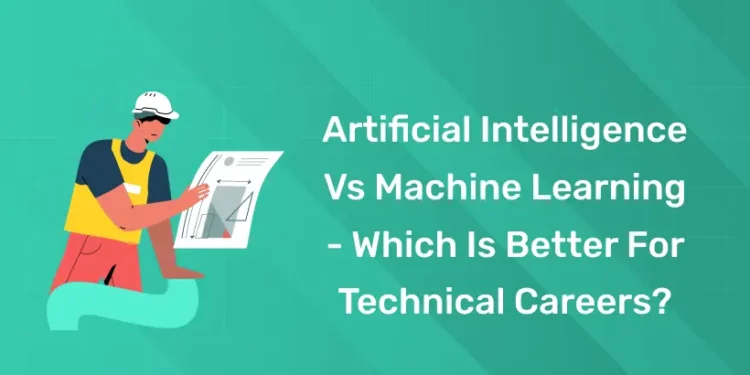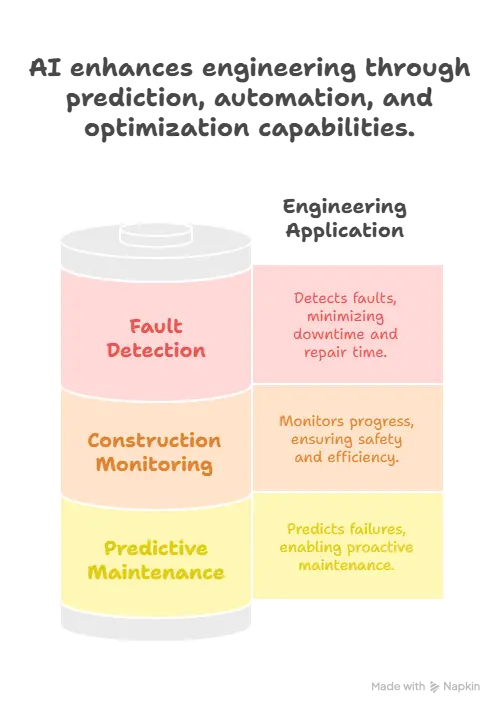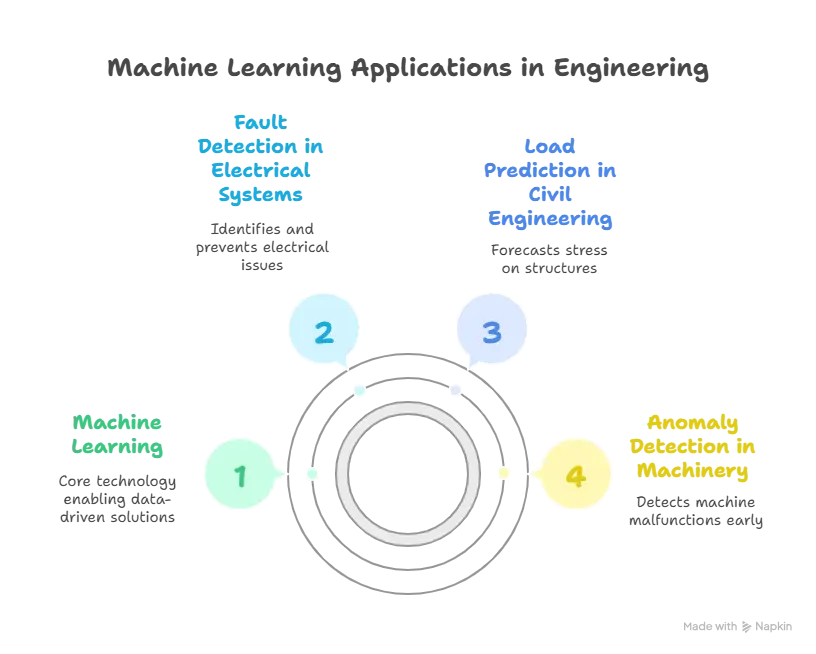Table of Contents
Artificial Intelligence (AI) is no longer just for coders or tech experts. Today, Artificial Intelligence (AI) and Machine Learning (ML) are changing how industries work — from manufacturing and construction to healthcare and finance. Whether you’re a software developer, mechanical engineer, or data analyst, understanding AI and ML is becoming more important than ever.
In recent years, companies all over the world in India employ professionals with skills in AI and ML. These technologies help to solve problems in the real world such as predicting equipment failure, improving energy use or building a smart data learning of data. If you are planning a technical career and wondering which path to take — AI or ML, this blog will help you decide. We will compare the skills you need, job roles, salary, and career growth in both fields so you can choose the one that’s best for your future.
Get hands-on with our MEP Quantity Surveyor course – sign up for a free demo!
Understanding the Basics
Artificial intelligence, or AI means creating computers, do tasks that usually require human thinking, such as identifying images or understanding of speech. The machine learning, or ml, is part of AI that helps the computer learn from data and improve on its own. AI is a great idea of smart machines, and ML is a way to make machines smart by learning from examples. So, ML is a small part inside the bigger world of AI.
What is Artificial Intelligence (AI)?
Artificial intelligence (AI) means making machines or computer programs enough to do enough to work that usually requires human thinking. These tasks may include things like understanding languages, identifying images, solving problems or even decision -making. With simple words, AI machines allow to “think” and “act” as human beings.
For example, when your phone suggests words when you write or when a robot decides where to clean – it is AI in action.
What is Machine Learning (ML)?
Machine Learning (ML) is a special part of AI. It helps the machines learn from data without being directly programmed. Instead of giving a machine every single rule, we give it lots of data, and it learns patterns from that data to make decisions.
For example, if you show a machine 1,000 pictures of cats and dogs, it can learn to tell the difference on its own. This is ML.
How Are AI and ML Related?
Machine learning is one of the subset of artificial intelligence. This means that ML is a way to get AI. All machine learning is AI, but not all AI machine learning. AI is a great idea – making machines smart. ML is one of the ways to do so by helping the machines learn from experience.
In other words, AI is goals, and machine learning is one of the units used to achieve that goal.
Suppose you want to create a smart assistant who can recognize your voice and understand your bids. AI covers the whole process of voting recognition, understands the meaning, responds and decides to respond. Within that, ML plays a big role — it helps the assistant learn your voice over time and get better at understanding what you mean based on past interactions.
Application of AI in Core Engineering Fields
Artificial Intelligence is no longer just for software or tech companies — it’s now playing a key role in core engineering fields like Mechanical, Civil, and Electrical Engineering. Here’s how AI is being used in each:
Mechanical Engineering:
-
Predictive Maintenance: AI helps to “predict” the AI machines when some are about to fail, so it can be maintained before you break. It reduces shutdown and saves costs.
-
Robotics and Automation: AI is used to design a smart robot that can collect parts, transfer materials and work in a complex environment without direct human control.
-
Design Optimization: AI algorithm may indicate the best design for components by analyzing performance data and simulation.
Civil Engineering:
-
Smart City Development: AI is used to handle traffic, energy use and real -time waste. It makes cities more efficient and environmentally friendly.
-
Construction Site Monitoring: AI-controlled drones and cameras can monitor progress, can detect security problems and track the use of materials.
-
Structural Health Monitoring: AI systems analyze data from bridges or buildings to detect cracks, stress or weakness before a failure.
Electrical Engineering:
-
Smart Grids: AI helps balance electricity requirements and real -time offers, making the grid more efficient and prevents electric power outages.
-
Automation in Power Systems: AI controls and optimizes power plants, switches and electrical networks.
-
Fault Detection: AI detects and quickly detects electrical defects, reduces the time of repair and downtime.
Application of Machine Learning in Core Engineering
Machine Learning (ML) is changing the way engineers solve problems by using data to learn patterns and make predictions. It is especially useful in areas where traditional methods are slow, manual, or less accurate. Here’s how ML is helping in different engineering fields:
Fault Detection in Electrical Systems:
The ML model can analyze a large amount of electric data in real time to find unusual patterns or defects in a system. For example, if a transformer overheating or has problems in a streamline, ML can detect it quickly and vigilant engineers. This prevents blackouts and reduces downtime.
Load Prediction in Civil Engineering:
In civil projects, ML is used to predict the load or stress that buildings, bridges, and roads may face. By learning from past construction data, weather, and usage patterns, ML helps engineers design structures that are safer and more efficient.
Anomaly Detection in Machinery (Mechanical Engineering):
ML helps detect small changes in how machines behave. For instance, if a motor starts vibrating abnormally, ML can spot the change before it becomes a big issue. This is key for predictive maintenance, reducing breakdowns and saving money.
Get hands-on with our Quantity Surveyor course – sign up for a free demo!
Which One to Learn? – Based on Career Goals
If you think about the future in technology or engineering, the selection depends on artificial intelligence (AI) and machine learning (ML) on your interests and long goals. Both areas grow rapidly and offer exciting career opportunities, but they are different in attention and application.
Here’s a simple comparison to help you decide:
| Factor | Artificial Intelligence (AI) | Machine Learning (ML) |
|---|---|---|
| Definition | Making machines think and act like humans | Teaching machines to learn from data |
| Scope | Broader – includes ML, NLP, robotics, vision, etc. | Narrower – focused mainly on algorithms & data |
| Programming Skills | Required (Python, Java, etc.) | Required (Python, R, libraries like Scikit-learn) |
| Math Requirements | Moderate (logic, probability, basic stats) | High (linear algebra, calculus, deep statistics) |
| Best For | Those interested in general AI systems, robotics | Those interested in data-driven problem solving |
| Job Titles | AI Engineer, Robotics Developer, NLP Engineer | ML Engineer, Data Scientist, Research Analyst |
| Industries | Healthcare, Robotics, Automation, Finance | EdTech, E-commerce, Transportation, Manufacturing |
| Learning Path | Start with AI concepts, then explore ML | Start with Python and data, then dive deep into ML |
Job Opportunities & Industry Demand
Integration of artificial intelligence (AI) and machine learning (ML) in engineering subjects have created a new wave of high-profits in industries. Here is a detailed overview of specific positions, as well as with industries hiring them.
1. AI Robotics Engineer (Mechanical Engineering)
Role Description:
Mechanical engineers can integrate AI into robotics and automation by integrating the machines that work independent-like mounting line robots, smart dentures or autonomous drones.
Responsibilities include:
-
Designing intelligent machines
-
Programming robotic behavior
-
Using sensors and computer vision for real-time response
Industries Hiring:
-
Automotive (BMW, Tesla)
-
Manufacturing (ABB, Siemens)
-
Defense & Aerospace (Airbus, HAL)
2. Smart Grid Analyst (Electrical Engineering)
Role Description:
Smart Grid Analysts work on power distribution systems that use AI to manage electricity flow efficiently. They help detect faults, predict energy usage, and optimize grid operations using data.
Responsibilities include:
-
Analyzing energy usage patterns
-
Forecasting load and demand
-
Improving automation in grid operations
Industries Hiring:
-
Energy providers (E.ON, RWE, Schneider Electric)
-
Public utilities
-
Renewable energy startups
3. AI in Urban Planning (Civil Engineering)
Role Description:
Civil engineers can collaborate with AI tools for smart urban development, traffic adaptation, flood exception and monitoring of automated infrastructure.
Responsibilities include:
-
Using AI to model urban layouts
-
Monitoring construction sites with drones and sensors
-
Predicting structural issues before they happen
Industries Hiring:
-
Urban infrastructure consultancies
-
Government planning agencies
-
Construction technology firms
4. ML Maintenance Analyst (Mechanical/Electrical)
Role Description:
This role focuses on future maintenance. By analyzing machine data with ML algorithms, engineers can predict errors and reduce shutdowns in plants and machines.
Responsibilities include:
-
Collecting and analyzing sensor data
-
Building ML models to detect early signs of faults
-
Improving equipment lifespan
Industries Hiring:
-
Logistics & Warehousing (Amazon, DHL)
-
Manufacturing (GE, Bosch)
-
Heavy industries (Caterpillar, Tata Steel)
Industries with High Demand for AI & ML Engineers:
| Industry | Why They Need AI/ML Engineers |
|---|---|
| Manufacturing | For automation, quality control, and predictive maintenance |
| Energy | Smart grids, demand prediction, and renewable energy optimization |
| Infrastructure | Smart cities, transportation planning, and environmental monitoring |
| Logistics | Route optimization, inventory tracking, and warehouse robotics |
| Healthcare | Equipment diagnostics and hospital infrastructure planning |
Master MEP Design with Industry-Leading Training!
Gain in-depth knowledge of Mechanical, Electrical, and Plumbing (MEP) Design with expert-led courses. Learn HVAC, fire safety, sustainable building strategies, and BIM applications to excel in the construction industry.
Know MoreHow to Get Started?
Starting the journey in AI and machine learning is not heavy, even if you are from traditional engineering backgrounds. Start by learning the basics of Python programming – it is the most widely used language in AI/ ML. Then take the online course in AI and ML basically with platforms such as Coursera, edX, or Udemy.
- Focus on core concepts that monitored and unprotected learning, nerve networks and data prepared. Use time -friendly tools such as Google Colab or Jupyter Notebook to practice.
- Then you can use your education on engineering-related projects-for example, future maintenance or power system loaded in power systems. Learn how to work with data using libraries such as Pandas, NumPy, and scikit-learn.
- Finally, create a portfolio of mini projects and publish them on GitHub or LinkedIn. This will show potential employers for your practical skills and help you stand in the labor market.
Conclusion
Artificial intelligence and machine learning are powerful technologies that shape the future of engineering careers. While AI focuses on making machines generally smart, ML learns to learn from data and improve over time. Both areas provide exciting job opportunities in industries such as production, infrastructure and energy. The selection between AI and ML depends on your career goals and your interests. By starting the basics and building practical skills, engineers can stay in this growing field. Squeezing these techniques will open innovative roles and doors of a rewarding career path.
| Related Links | |
Master MEP Design with Industry-Leading Training!
Gain in-depth knowledge of Mechanical, Electrical, and Plumbing (MEP) Design with expert-led courses. Learn HVAC, fire safety, sustainable building strategies, and BIM applications to excel in the construction industry.
Know MoreFrequently Asked Questions
What is the main difference between Artificial Intelligence and Machine Learning?
Artificial intelligence (AI) is a widespread concept with machines that perform smart tasks. Machine Learning (ML) is a Sate of AI that focuses on teaching machines to improve data and improve without a clear program.
Do I need to know coding to work in AI or ML?
Yes, basic programming skills, especially in Python, are important for working efficiently in AI and ML, as most tools and frames use coding.
Which field has more job opportunities: AI or ML?
Both AI and ML provide strong job opportunities, but ML jobs are currently plentiful due to increasing use of data-driven solutions in industries
Can engineers from traditional fields learn AI and ML easily?
Yes, engineers with a strong foundation in mathematics and problems can learn AI and ML through online courses and practical projects.
What industries are hiring AI and ML professionals?
Industries such as production, energy, infrastructure, health services and logistics actively employ experts in AI and ML.
Is knowledge of mathematics important for AI and ML?
Yes, understanding basic mathematics concepts such as statistics, linear algebra and calculus helps to better lubricate AI and ML algorithms.

























